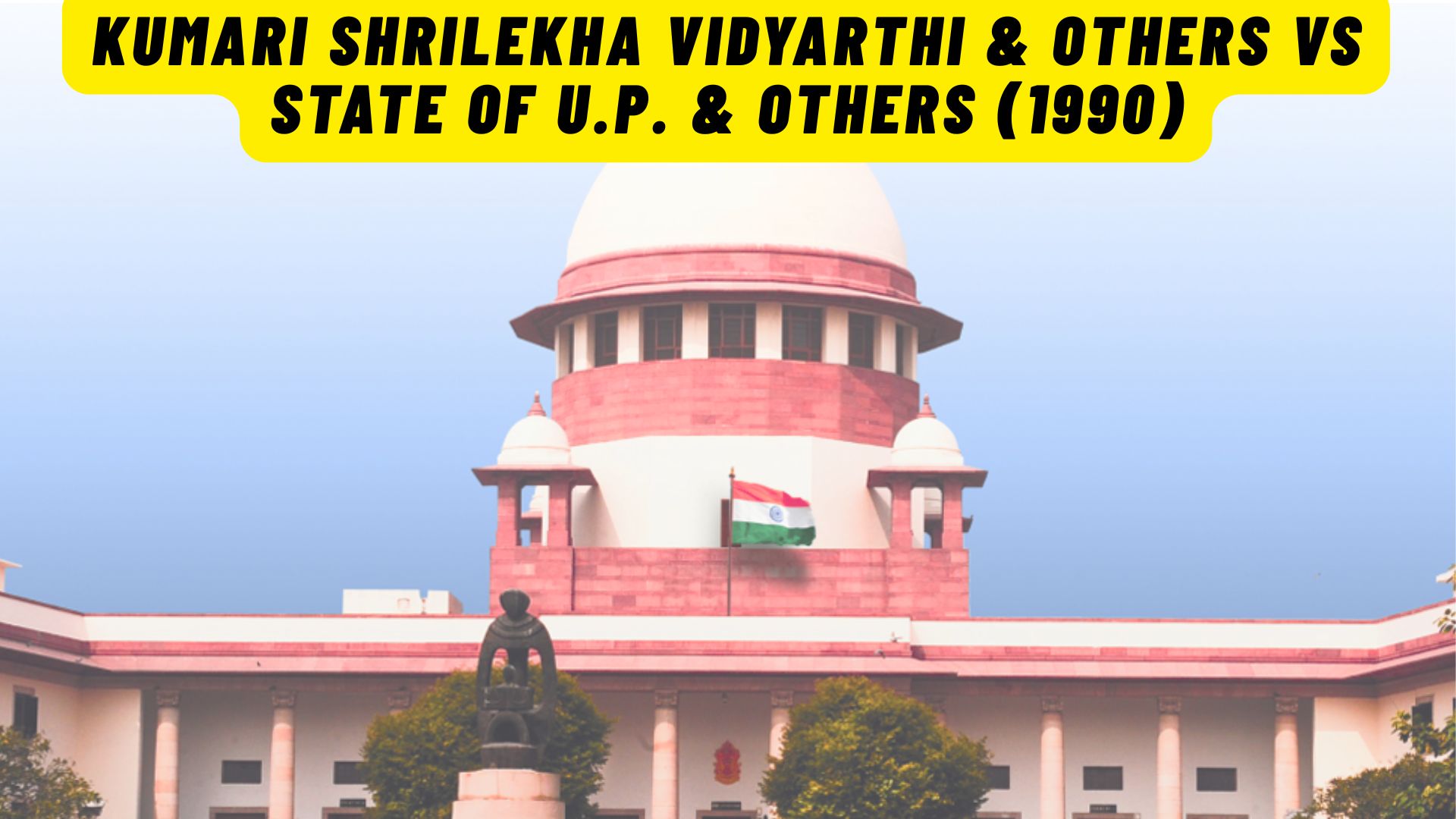
Case Summary: Kumari Shrilekha Vidyarthi & Others vs State of U.P. & Others (1990)
Citation Stats: (1990) 09 SC CK 0002 | AIR 1991 SC 537 | (1990) 4 JT 211 | (1991) 1 SCC 212 | (1990) 1 SCR 625 Supp | (1991) 1 UJ 645 | (1990) 2 UPLBEC 1174
Court: Supreme Court of India
Bench: Division Bench – R. M. Sahai, J; J. S. Verma, J
Date of Decision: 20-09-1990
Final Decision: Allowed
[Judgment Source]
https://www.courtkutchehry.com/Judgement/Search/AdvancedV2?docid=259825
Facts of the Case
The Government of Uttar Pradesh issued a general order on 6-2-1990 terminating the appointments of all Government Counsel (Civil, Criminal, Revenue) across all districts, effective 28-2-1990, regardless of the remaining tenure. The order called for preparation of new panels for fresh appointments, setting eligibility criteria, documentation requirements, and appointment conditions. The affected counsel, including associations, challenged the validity of this mass termination as arbitrary, violative of Article 14, and contrary to principles of fairness in public employment.
Law Points Raised
1. Whether the impugned government order is amenable to judicial review.
2. Whether the blanket termination of Government Counsel appointments violates Article 14.
3. Whether the appointments of Government Counsel are purely contractual or involve public law elements.
4. Scope of judicial intervention in termination of professional engagements in the public sector.
Acts / Provisions / Articles Referred
• Constitution of India – Article 14, Article 226, Article 32.
• Criminal Procedure Code, 1973 – Sections 24, 25, 321.
Judgements Referred
Cited principles from administrative law and public employment cases; key reliance on constitutional equality jurisprudence.
Obiter Dicta
Even in contractual matters, when the State acts in its executive capacity, it must conform to Article 14's mandate of non-arbitrariness. Mass termination without rational basis erodes public confidence in governance.
Ratio Decidendi
The engagement of Government Counsel, though contractual, involves public law obligations. The State's power to terminate such appointments is subject to constitutional scrutiny under Article 14. The impugned order, being arbitrary and lacking justification, was unconstitutional.
Final Ruling
The Supreme Court allowed the petitions, quashed the Government Order dated 6-2-1990, and restored the appointments of Government Counsel. It held that the State cannot resort to arbitrary mass termination in disregard of fairness and equality principles.
Relevant Paragraph Numbers
Paras: 4, 6, 8, 12, 16, 18, 23, 25.
Summary
This landmark judgment expanded the scope of Article 14 to cover contractual engagements involving public functions. It reinforced that State action must meet standards of fairness and non-arbitrariness, even in non-statutory appointments, thereby protecting public servants and legal professionals from politically motivated mass dismissals.
[Judgment Source]
https://www.courtkutchehry.com/Judgement/Search/AdvancedV2?docid=259825